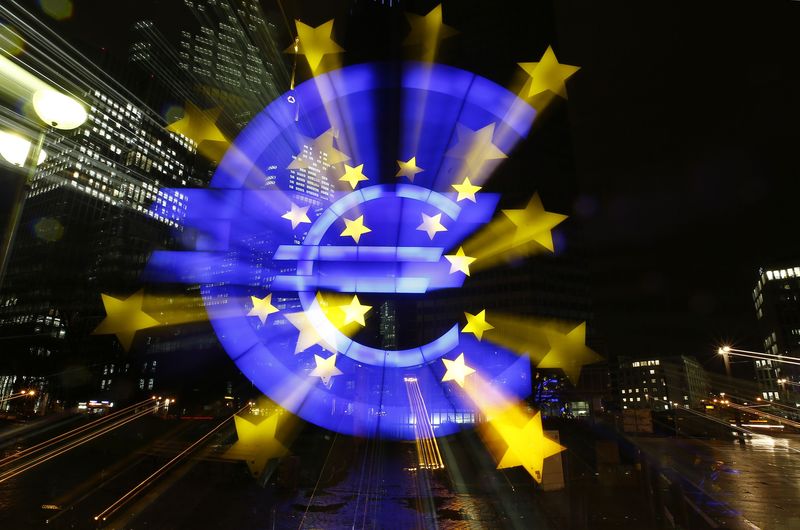By John O'Donnell and John Stonestreet
FRANKFURT (Reuters) - Lending in the euro zone increased for the first time in three years, the European Central Bank said on Wednesday, marking a new chapter in the bloc's recovery after the launch of a massive money-printing programme.
Lending across the 19 countries in the currency union rose by 0.1 percent on the year in March, giving hope that Europe, whose economy has trailed that of the United States, may finally be turning the corner.
Although the rise is small, it seals a recent upward trend and is a significant improvement after three years of nearly uninterrupted and often sharp monthly falls, spurred by a banking and debt crisis.
"The lending figures suggests that the ECB policy is starting to turn the credit cycle and that's good news for growth," said James Knightley, an economist with ING. The swing is better than the flat result many analysts had predicted.
"Credit is more readily available and demand is returning," he said. "If we can now get investment moving, that will generate real momentum."
A return to confidence among banks is particularly important in Europe, where businesses traditionally rely on them for finance rather than tapping capital markets as their peers in the United States do.
UNEVEN RECOVERY
Health checks late last year are credited with prompting banks to bolster their finances and clear out loans with little hope of being repaid. But problems still linger.
Although the overall figure is positive, closer inspection reveals the uneven nature of the improvement.
Many business owners, for instance, especially in crisis-hit countries, continue to find it difficult to borrow and there are big differences in the cost of credit between, say, Germany, and Greece. Savers continued to withdraw deposits from their banks in Greece, as a cash pinch worsens.
Lending to euro zone companies in March shrank compared to a year earlier by 0.6 percent, albeit an improvement on the previous month.
And while lending to buy homes grew by 0.2 percent in March, consumer loans were down by 0.3 percent.
The fragility of the euro zone's recovery was underscored by a dip in economic confidence in April.
While economic morale in Spain rose strongly in April, it slipped in Germany. In France, the euro zone's second-biggest economy, the mood continued to be downbeat.
The positive overall lending result will nonetheless bolster the ECB. The upswing is thanks in part to its 1 trillion euro-plus quantitative easing scheme to buy chiefly government bonds, which has propped up confidence despite a political impasse with cash-strapped Greece.
The M3 measure of the amount of money in circulation - including cash and deposits that can be drawn down - grew by 4.6 percent in March, stronger than the previous month.
This is a good signal for future price inflation, an important measure of economic health, as more money buoys spending.
"The state bond-buying programme is having an effect," said Christian Lips, an economist with NordLB.
